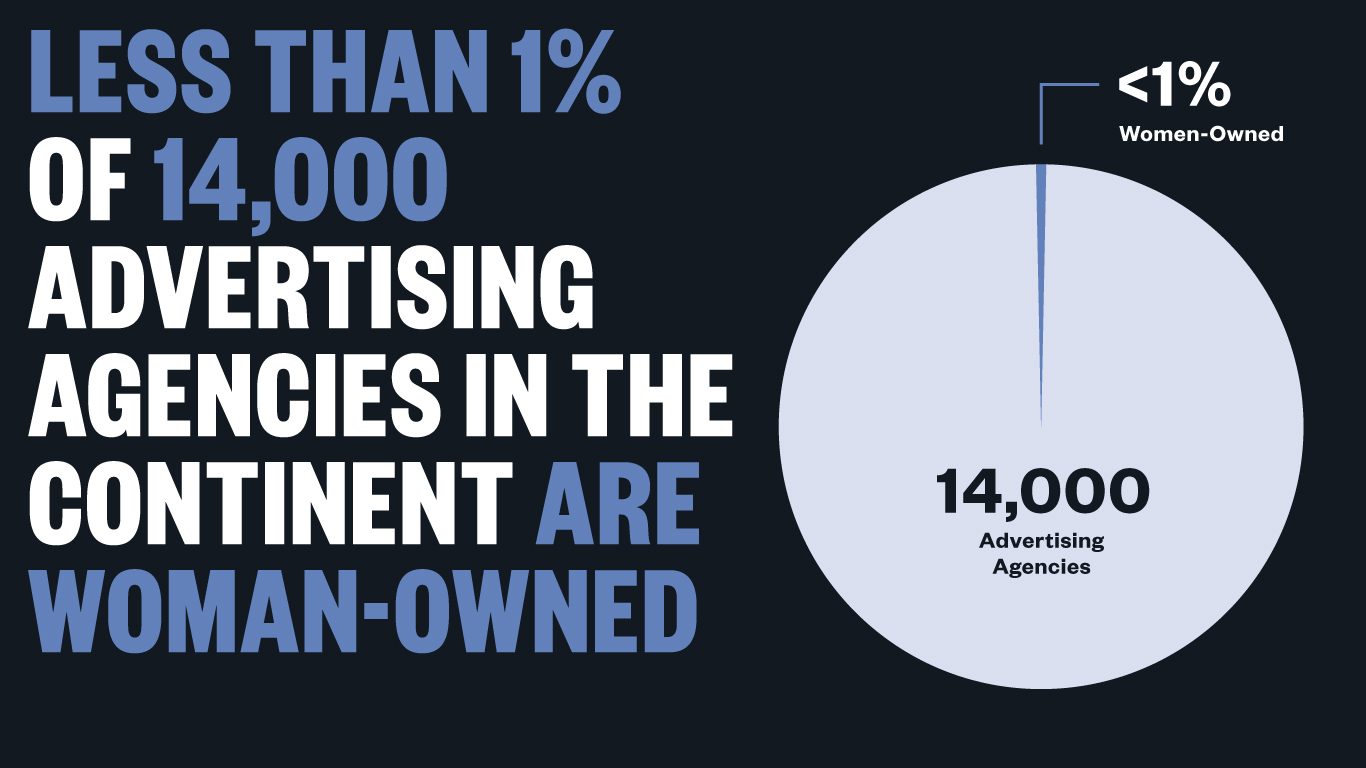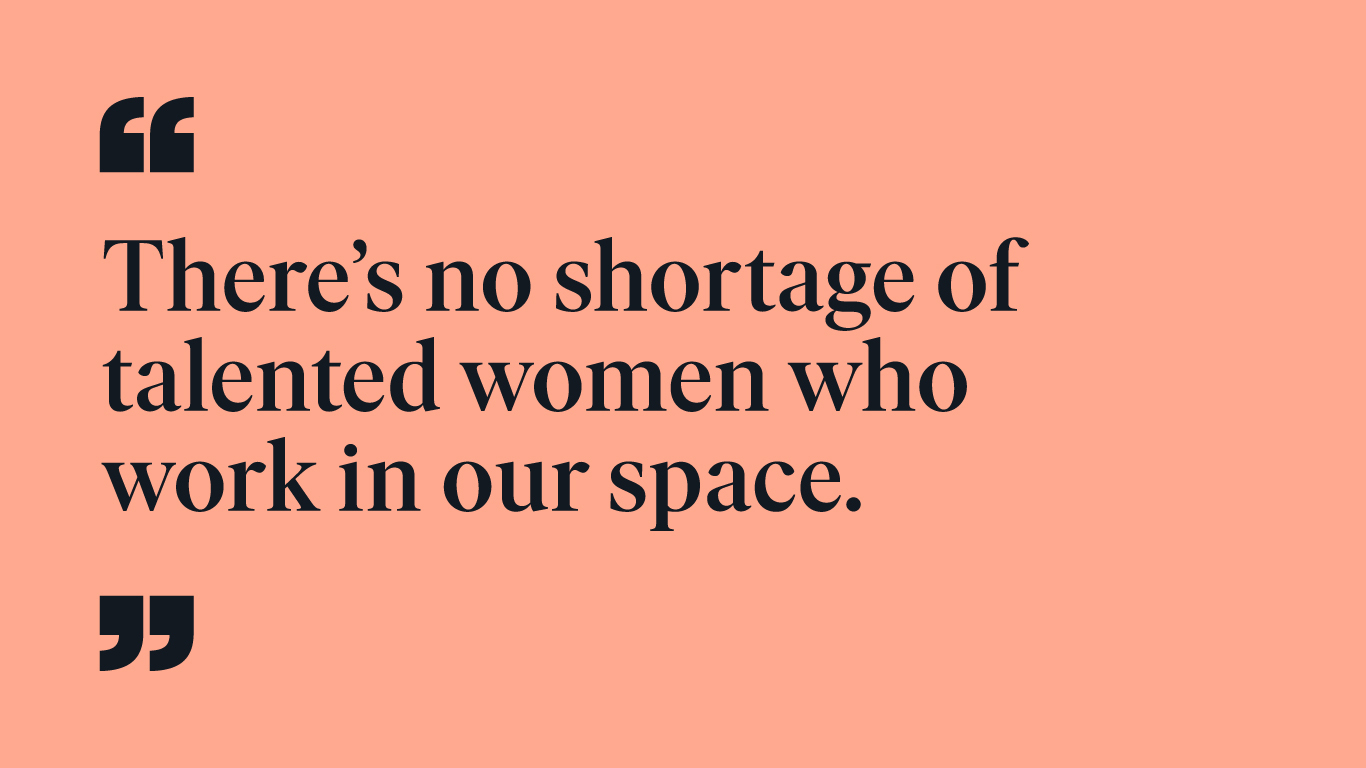It Starts at the Top: The Difference Between Woman-Owned and Woman-Led
Women have had a long history in C-suite leadership roles in advertising. Ours is one of the professions that has welcomed women early on and recognized the value they bring to the work and to the culture. But when Sullivan was founded over thirty years ago, it was uncommon to see a woman-owned agency. Today, the landscape is remarkably different.
Or is it?
According to the Women’s Business Enterprise National Council (WBENC) and the 4As, while 40% of businesses nationwide are owned by women or non-binary individuals, less than 1% of 14,000 advertising agencies in the continent are woman-owned.
As both a woman-owned and women-led business, Sullivan is proud to be a part of that 1%. So I sat down with Founder and Managing Partner, Barbara Apple Sullivan, to talk about this phenomenon and other realities pertaining to women in our field.

Q: How does this 1% figure strike you? Are you surprised? Disappointed?
A: Both. It’s a sad reality because there’s no shortage of talented women who work in our space. And you can see their skill and prowess being recognized in the sheer number who hold leadership positions across agencies.
Owning an agency is a different matter though. It can be daunting to take the risk. Advertising is traditionally a very macho world, and one that’s highly visible. That makes it difficult to try, fail, and then fly under the radar afterwards. So you’re talking about not just financial risk as there would be in other businesses, but also the ultimate reputational risk. And it’s hard for women to raise money.
In fact that might even be underselling the difficulty women face in raising funds. According to Forbes.com, women-led startups received only 2.3% of venture capital funding in 2020. And when receiving investment from female VC’s, women owners are often met with suspicions of special treatment along gender lines.

Q: Why do clients care that your agency is woman-owned?
A: Diversity and inclusion is more explicit than it has been in the past. Companies have tangible goals and are measured on their work with “diverse suppliers.” They recognize that diversity is good for their business and good for their work. That gives Sullivan a leg up, but it’s not enough. We still have to be better than our male-owned counterparts.
Every decision is made through the lens of whether or not it is good for the work. At Sullivan we value the quality of our work over everything, including profit. And high quality work isn’t just about performance, it’s about humanity.
Q: Does being woman-owned make a difference in how teams work?
A: We’re very collaborative. That comes through in our client work. I think clients can feel that we like each other and work well together and with them, too. When you can relate to clients as human beings and blur the lines of that relationship, clients become our friends.
It’s safe to say that we’re particularly good at making friends at Sullivan. Our client relationships are as long as they are deep, delivering us an average yearly client retention rate of 87% over the past 30 years.
Q: How does woman ownership affect your company culture? Why does it matter for employees?
A: I’m surprised by how much it matters to current and prospective employees. It’s often one of the first things candidates mention about their interest in Sullivan. And it clearly sets us apart from other agencies, all of which seem to be either publicly-owned or privately-owned by men. Being woman-owned does make a difference in the culture, the environment, and even how we approach the work. We understand that the assets of our company are not on a balance sheet, but come up and down the elevator every day.
When we say “we have each others’ backs”, we mean it. Part of that is our priority on work life balance. The hybrid model we introduced in 2022 is working well. Employees choose when they want to be in the office and we allow everyone to go fully remote over the summer and holidays so we can accommodate their choices. We make sure parents are supported as signers of the Parental Leave Pledge. The community we’re always talking about isn’t just lip service, it’s genuine.
And it also leads to genuine buy-in from our team. Many employees stay at Sullivan a long time. The average tenure of our 11 person leadership team is 16 years. And our ongoing retention is way above industry norms.
At the end of the day, women have carved out a solid position for themselves as leaders in our space, but we’ve yet to achieve that same success as owners of agencies, and in many ways it’s that crucial distinction that makes all the difference.
So while it appears that we’re few and far between, if you’re interested in working with a partner that builds deep relationships, connects with humanity in their work, sees the forest through the trees, and builds unparalleled communities…
It might be worth checking to see who’s running the show.


